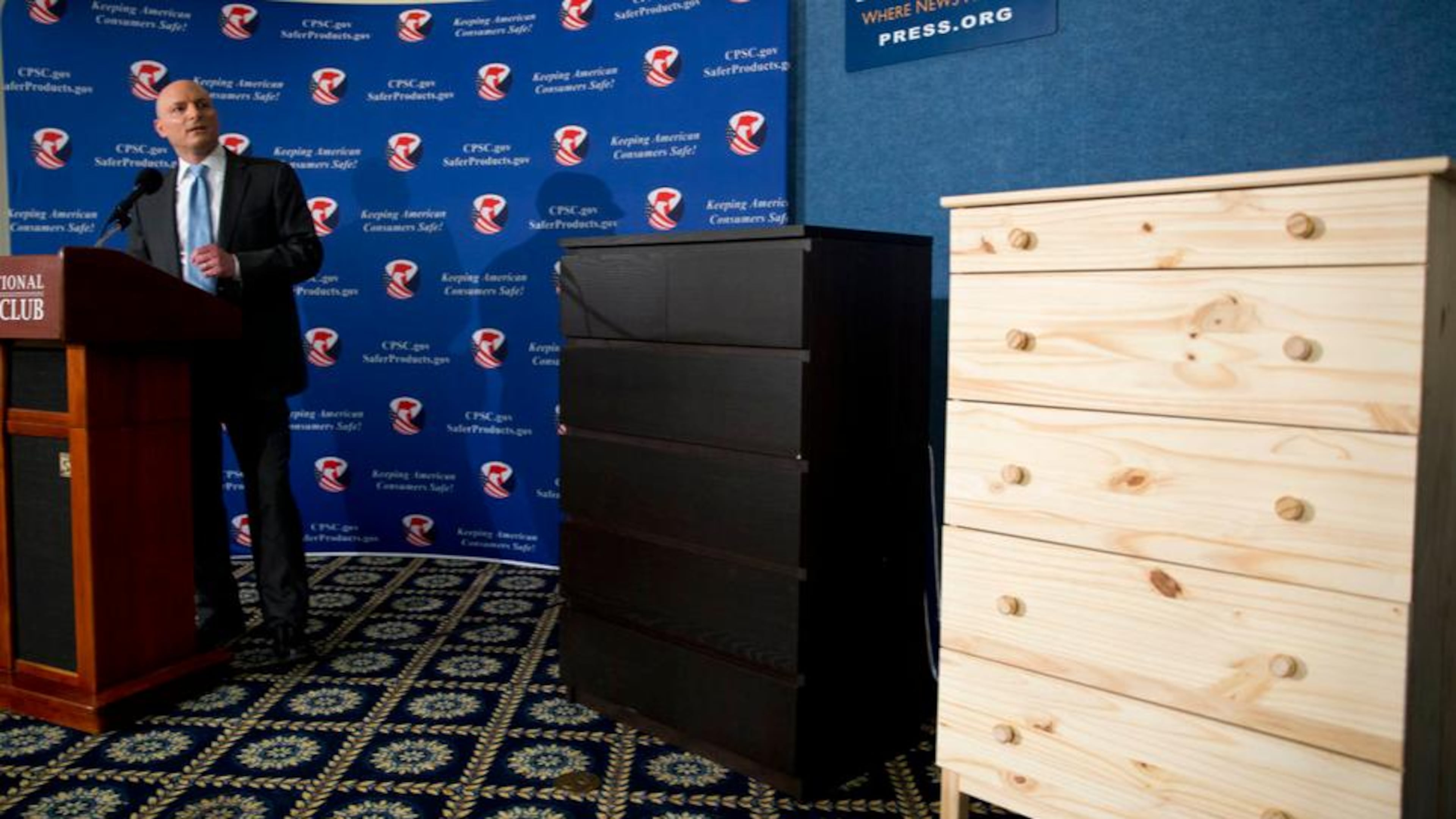Political power play poses a risk to consumer safety

Last week, two days after the U.S. Supreme Court ruled the President can fire three members of the Consumer Product Safety Commission without cause, I received an alert from the federal agency via Amazon.
The Frigidaire minifridge, plugged into my teenager’s bedroom, may have internal electrical components that could short-circuit and ignite the plastic housing. The resulting fire and burn hazards had already caused more than $700,000 in property damage to other consumers.
Curtis International, the Canada-based importer of the product, which is manufactured in China, had received reports of the minifridges smoking, sparking, burning, melting, overheating and catching fire. At least two consumers reported smoke inhalation injuries.
As a result, more than 600,000 units were being recalled.
Of course, I panicked. I was worried that this contraption could harm my child or burn down my house, so I went running to unplug it.
But my daughter, who had received the same recall notice, had already done her due diligence. She read the full list of model numbers and checked the back of the minifridge to discover that the unit we had purchased was one of two that were not included in the recall.
I was relieved, but in that moment, I also realized how the current back-and-forth between President Donald Trump and the ousted commissioners of the CPSC could impact our safety and well-being.
Most Americans rarely think about the CPSC. Probably not until a recall notice lands in our mailbox or inbox are we grateful that there is an independent regulatory agency watching over the safety of products that infiltrate our everyday lives.
We may not realize the importance of those protections until they cease to exist or are seriously compromised.
The CPSC is a federal agency established in 1972 by Congress. Comprised of five commissioners appointed by the President, with no more than three affiliated with the same political party, the CPSC was designed to be bipartisan and resilient to political whims. The agency develops safety standards, pursues recalls and has the authority to ban products under certain circumstances.
Updating choking hazard labels on children’s toys and setting standards for flammable clothing and furniture are just some of the ways the CPSC has helped keep Americans safe through regulatory actions. But in recent years, there has been visible dissension in the CPSC ranks.
In 2023, Richard Trumka, one of the newly ousted commissioners, issued a statement opposing the CPSC’s decision to adopt dresser tip-over standards that were written by the furniture industry. He supported the more stringent regulations that CPSC scientists had developed.
Last spring, the Department of Government Efficiency aimed its cost-cutting efforts at CPSC. Since then, the agency’s existence and independence have been in question.
In June, plans to eliminate the agency became clear when the 2026 budget request to Congress proposed shutting down the CPSC and shifting oversight of more than 15,000 consumer products to the Department of Health and Human Services.
In addition, the budget request would reduce funding and staff, which could weaken the federal government’s ability to protect consumers from illegal, hazardous and defective products.
“Whether they’ve heard of the agency or not, Americans depend on the CPSC every day,” said Gabe Knight, senior safety policy analyst for Consumer Reports, the nonprofit consumer organization. “If this agency is eliminated, we will be left to face a more dangerous marketplace and suffer from increased exposure to hazardous products that can injure or kill.”
Sadly, the chaos that has ensued has less to do with the President’s concerns about protecting consumers and more to do with a strategy to expand his power.
“By allowing the president to remove commissioners for no reason other than their party affiliation, the majority has negated Congress’s choice of agency bipartisanship and independence,” wrote Justice Elena Kagan in her dissent to the Court’s July 23 ruling that allowed Trump to fire the three Democratic commissioners. Justices Sonia Sotomayor and Ketanji Brown Jackson joined Kagan in the written dissent.
The case is pending in an appeals court and could return to the justices, but if the ruling stands, it could eliminate the protections that have shielded independent agencies like CPSC from presidential control for almost a century.
And should the reorganization of CPSC move forward, consumers can anticipate the possibility of slower recalls and a loss of specialized expertise in safety standard development, product research and enforcement issues.
Megaretailers like Amazon and Walmart might find the regulatory environment to be less adversarial. Tesla might have fewer battery safety recalls.
That sounds like a benefit to big business, but if a weakened CPSC leaves consumers open to risks, it could also spark a strong public reaction against those industries.
For now, companies regulated by CPSC will likely face confusion and uncertainty until the upheaval at the agency is resolved.
And we, the American consumer, will suffer the consequences.
Read more on the Real Life blog (ajc.com/opinion/real-life-blog/) and find Nedra on Facebook (facebook.com/AJCRealLifeColumn) and X (@nrhoneajc) or email her at nedra.rhone@ajc.com.



